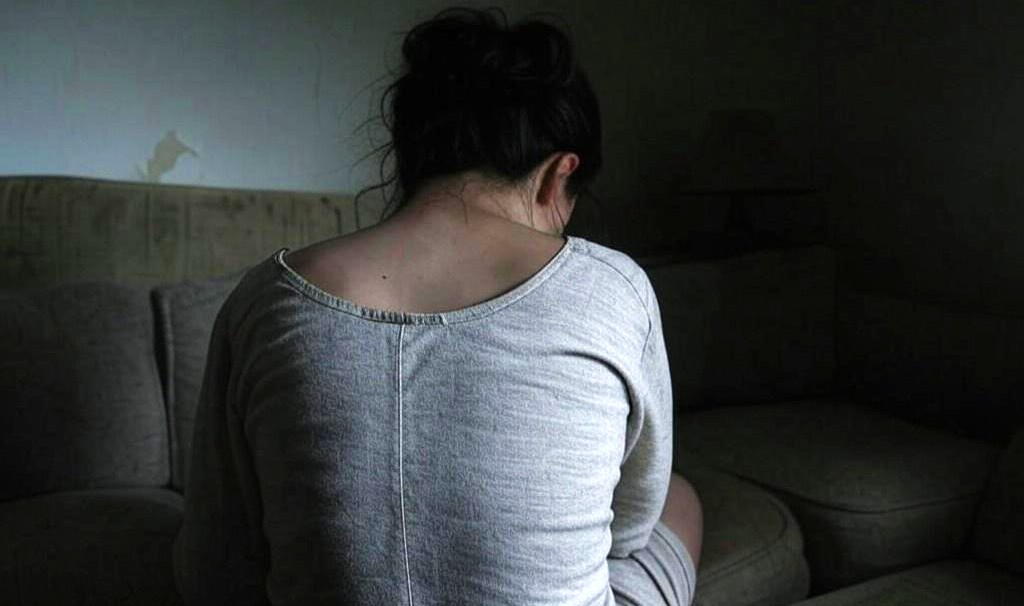Bringing up baby, minus diapers
FREE Catholic Classes
McClatchy Newspapers (MCT) - Luciana Ferrante, 3 months, has been using the toilet since she was 5 days old.
Highlights
McClatchy Newspapers (www.mctdirect.com)
9/22/2008 (1 decade ago)
Published in Marriage & Family
Mom Jessica, 26, uses "Elimination Communication" to read her daughter's signals and catch her waste in a toilet instead of relying on diapers.
The potty-training method, now called toilet learning in some circles, is gaining attention. Groups including Diaper-Free Baby offer online education and train mentors including Sarah Wood, who offers free workshops every other month in Charlotte, N.C.
The gist of it is that when babies send their cues _ grunting or wiggling a short time after eating, for example _ a parent holds them over a toilet, makes a "sssh" noise to affirm the cue, and waits for the child to go. Children old enough to sit up use a potty seat.
Most families say they do it to strengthen their bond with their children, respond to their needs immediately and keep diapers out of landfills. Other families also do it to save money.
Do these kids wind up being potty trained a lot sooner than other children? Proponents say yes.
Wood, the mentor, started E.C. with her son Joseph when he was 9 weeks old. She says it wasn't hard to learn and quickly became part of their "attachment parenting" lifestyle. They co-sleep, she wears him in carriers when they go out and they are practicing extended nursing. He's now 2 and uses the potty on his own.
Ferrante, a stay-at-home mom, learned the method from Wood. She says her husband, Matt, 27, does it on the weekends. The Ferrantes have taken a laid-back approach, using cloth diapers as backup.
"Some days we do it four times, other days we're lucky if we do it once," Ferrante says. "But it's so beneficial _ she'll eliminate on cue if I hold her over the toilet and do the cue sound, 'sssssh.'"
IN OTHER CULTURES
Rural families across the globe have managed without diapers for generations.
"Tribal cultures use this exact method all the time," said Dr. Sheila Kilbane, a Charlotte-area pediatrician. Those mothers "wear" their babies and learn to read their baby's physical signals so they know when to hold them over grass to go.
"I think some mothers are naturally more attuned to their babies and have that little extra something," Kilbane said. "Those (urban) mothers could do this if they're totally committed to devoting the time to it." For most American mothers today, even those who stay home with their kids, it could be too time-consuming.
E.C. is common in modern Asia and India, even in urban areas. Meredith Small, a professor of anthropology at Cornell University, estimates that children in about 75 countries are being raised without diapers today.
But in the United States, some pediatricians are skeptical about E.C., saying children cannot physically control their bladders and bowels until they are at least 18 months old. Several Charlotte-area pediatricians declined to comment for this story.
Moms who use the method, however, say the proof is in the potty.
PICKING UP BABY'S SIGNALS
Wood, a stay-at-home mom who lives near the Arboretum in south Charlotte, first heard about E.C. when she was researching natural living and Attachment Parenting. "I was learning his signals for when he was hungry and sleepy, and I just added his elimination cues to that list," she says. "I used a mixing bowl from our kitchen and just fumbled through a couple weeks before I told my husband about it."
She "caught a pee" the first day she tried. She still put a diaper on him when they went out, but continued to watch for his cues and held him over toilets at the grocery store or friends' homes.
Her husband, Michael, was surprised when she told him about E.C., but quickly saw how well it worked. He soon learned Joseph's signals and started participating.
"Intuition sounds hocus-pocus-y, but it's a resource," she says. "I never ignore a random potty thought.
"If I have a hunch that he needs to go, I'll suggest he sit on the potty and it's usually right. If I ignore it, it's pretty much a guarantee that we'll have an accident."
Sarah Wood says it's not possible to catch waste every time infants go, mainly because of the frequency _ some newborns go up to 20 times in 24 hours. But she says she was surprised at how quickly she learned to catch it most of the time. "I used diapers as backup for a while, 'til he was 18 months old. Then we went to just training pants when we were out," she says.
Kilbane, the pediatrician, says learning a baby's cues isn't "rocket science, but can be very challenging" because they don't always eliminate on a predictable schedule from day to day. Babies, often wiggly and floppy, can be tricky to hold over a toilet.
"I'd recommend that parents who are interested in this work with their pediatrician," Kilbane says.
Renowned child-rearing expert and author Dr. T. Berry Brazelton has said E.C. goes along with his belief that toilet training should be child-directed, without an age deadline or punishment. He witnessed it being done successfully by Mayan Indian mothers in southern Mexico.
"I'm all for it, except I don't think many (American) people can do it," he told the New York Times. "The thing that bothers me about it is today, probably 80 percent of (American) women don't have that kind of availability."
Wood disagrees, saying that using cloth and disposable diapers is "a lot more work" than learning and using the E.C. method. Even parents who work outside the home can practice E.C. before and after work and on weekends.
"It's all about timing, intuition and watching patterns," she says. "It feels good to be meeting his needs in real time. There's a delay when you're waiting to change a diaper. E.C.-ing is more hygienic and natural, and it strengthens our bond."
___
MORE INFORMATION
Want to know more?
Reach mentor Sarah Wood at sarah wood@diaperfreebaby.org or through her Yahoo group, http://groups.yahoo.com/group/DiaperFreeBabyofNorthCarolina/.
Also, www.diaperfreebaby.org.
COMMON PRACTICE AROUND THE WORLD
More than half of children worldwide learn to use toilets before they are a year old, according to Contemporary Pediatrics magazine. In the United States, the average is nearly 3 years for girls and 3 years, 3 months for boys, according to a 2001 Medical College of Wisconsin study.
___
© 2008, The Charlotte Observer (Charlotte, N.C.).
Join the Movement
When you sign up below, you don't just join an email list - you're joining an entire movement for Free world class Catholic education.
-

-
Mysteries of the Rosary
-
St. Faustina Kowalska
-
Litany of the Blessed Virgin Mary
-
Saint of the Day for Wednesday, Oct 4th, 2023
-
Popular Saints
-
St. Francis of Assisi
-
Bible
-
Female / Women Saints
-
7 Morning Prayers you need to get your day started with God
-
Litany of the Blessed Virgin Mary
A Future for Life: Introducing the Winners of the Priests for Life Pro-Life Essay Contest
-

Reflections on Pope Francis' 2025 World Day of Peace message
-

Exposing the Dark Reality of Sex Trafficking
-
Trump's Bold Geopolitical Moves: A Call for Reflection from a Catholic Perspective
-
Pope Francis Calls for Action Against Child Exploitation and Abuse
Daily Catholic
 Daily Readings for Friday, January 10, 2025
Daily Readings for Friday, January 10, 2025 St. William of Bourges: Saint of the Day for Friday, January 10, 2025
St. William of Bourges: Saint of the Day for Friday, January 10, 2025 Prayer for a Blessing on the New Year: Prayer of the Day for Tuesday, December 31, 2024
Prayer for a Blessing on the New Year: Prayer of the Day for Tuesday, December 31, 2024- Daily Readings for Thursday, January 09, 2025
- St. Adrian, Abbot: Saint of the Day for Thursday, January 09, 2025
- St. Theresa of the Child Jesus: Prayer of the Day for Monday, December 30, 2024
![]()
Copyright 2024 Catholic Online. All materials contained on this site, whether written, audible or visual are the exclusive property of Catholic Online and are protected under U.S. and International copyright laws, © Copyright 2024 Catholic Online. Any unauthorized use, without prior written consent of Catholic Online is strictly forbidden and prohibited.
Catholic Online is a Project of Your Catholic Voice Foundation, a Not-for-Profit Corporation. Your Catholic Voice Foundation has been granted a recognition of tax exemption under Section 501(c)(3) of the Internal Revenue Code. Federal Tax Identification Number: 81-0596847. Your gift is tax-deductible as allowed by law.







 Daily Readings for Friday, January 10, 2025
Daily Readings for Friday, January 10, 2025 St. William of Bourges: Saint of the Day for Friday, January 10, 2025
St. William of Bourges: Saint of the Day for Friday, January 10, 2025 Prayer for a Blessing on the New Year: Prayer of the Day for Tuesday, December 31, 2024
Prayer for a Blessing on the New Year: Prayer of the Day for Tuesday, December 31, 2024

